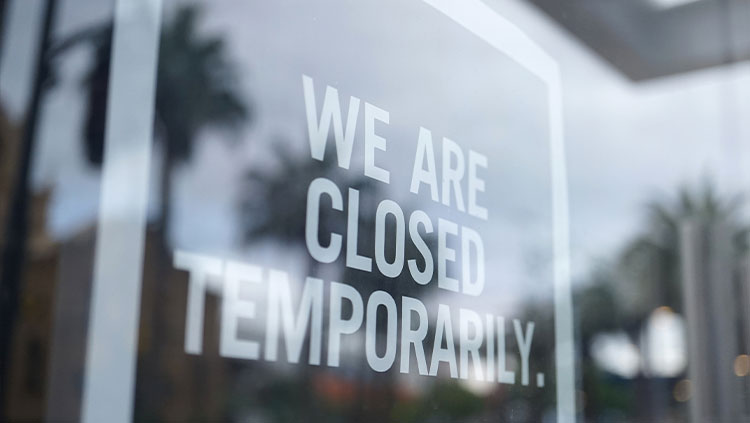The key to managing remote work staff and clients? Be prepared
Content Summary
- Business management
- COVID 19

This article was current at the time of publication.
If COVID-19 has taught us anything, it's that being prepared is the key to business success and survival.
Hobart-based public practice, 4 Business & Community, which offers a range of small-to-medium business (SMB) and not-for-profit (NFP) sector services, has been working with clients on the need for a cash flow buffer since before the lockdown period.
Principal Joss Fenton CPA says: "We include this ratio in our quarterly reviews, so it has worked very well in the current situation. Without that cash buffer, many organisations would have struggled to pay employees in advance of receiving JobKeeper payments and other government grants.”
The firm, which numbers three staff, as well as Fenton – a NFP specialist and member of CPA Australia's Tasmania Public Practice Committee — and fellow principal Simon Townsend CA, was also prepared internally for lockdown.
"We were already working remotely most of the time and were therefore well prepared for the COVID-19 lockdown," Fenton says.
"All our systems are online, with particular use of Xero and Google apps, which so far have all held up."
Managing through the COVID-19 crisis
Fenton emphasises the need to prioritise autonomous working over micromanagement — albeit combined with good training and constructive feedback to encourage staff to accomplish as much as they reasonably can.
"We have been stoked with our staff's efforts and diligence during this time," he says.
"Simon and I are very client-focused, and for that reason effective communication between us, as principals, our staff and clients has been [very important] over the past months."
Indeed, where previously the firm produced one or two newsletters to clients a year, conducted a monthly director meeting and held staff meetings on an ad-hoc basis, it has since compiled six newsletters for clients and business associates and holds weekly staff meetings via Zoom videoconferencing to share information and support one another.
Of course, finding the right balance between COVID-19-related issues (especially JobKeeper), BAS commitments and income tax returns, management financial reporting and other projects was always going to be challenging, but at 4 Business & Community, Fenton says, “it’s so far, so good”.
"With only a couple of exceptions, our clients have been understanding that we have had to provide additional explanations. However, if some are not, we are prepared to let them go — it is not worth the stress to ourselves and our staff."
Fenton concedes he is fortunate to personally know someone at the Australian Taxation Office (ATO), who worked a straight 30 days to help with the JobKeeper rollout.
"This has been a great example to provide to clients to explain how much work is going on behind the scenes to make this work for the benefit of all businesses, NFPs, self-employed, employees and the broader community. While some have fallen through the gaps, by and large we are impressed with what the government has rolled out, and how quickly."
Before the COVID-19 pandemic, the firm based 60 per cent to 70 per cent of its revenue on monthly subscription fees.
"That has allowed us to continue receiving income and dramatically increase services to help clients impacted by the COVID-19 crisis. We do not expect to recover all our time, but we do expect that it will build goodwill when clients receive their subscription renewals over coming months.
"While we are all working much harder and using our brains a hell of a lot more learning new things and problem-solving, we have continued to ensure we still have breaks and time with our families."
Managing staff remotely
The COVID-19 outbreak has exacted a toll on almost all public practitioners, and Kerri Dickman Selby FCPA, KDC Accounting principal and member of CPA Australia's ACT Public Practice Committee, admits she and her team of nine staff are worn down.
However, Selby remains positive it's all temporary.
"All but one [staff member] found working from home more frustrating than they thought, and some have already moved back into the office," she says. "I have resisted working from home unless absolutely required. When I get home, I switch off, which has always been one of my stress management tools, and a strategy I do not want to lose,” Selby says.
Generally, the firm uses Microsoft Teams for internal communications and phone calls and Zoom when liaising with clients.
"We have minimised [physical] client appointments to the essential, and are fortunate to have the office space to enforce social distancing," Selby says.
"No one has been offended, and we're pleased with the number of clients accessing our portal to digitally sign documents."
However, there is still a stockpile of client records that will need to be collected after the pandemic. "We are at risk of these accumulating beyond a comfortable level, but for now we're OK," she says.
The new tax season will require a lot more client interviews, but again Selby is confident the firm can manage the majority remotely. Cash flow is predictably tight, exacerbated by some clients objecting to being charged for COVID-19 discussions but KDC Accounting has overcome this.
A staff member is tasked with booking COVID-19-related calls, screening them and obtaining a list of questions, then quoting a fee. Clients who are unhappy with the arrangement are sent an email politely explaining the situation.
"That's OK, because we know we add value and are happy for them to eventually pay it off," Selby says.
Unfortunately, Selby says, some clients refuse to pay at all, because they think it is wrong to charge for such advice, and reflecting the approach taken by Fenton — they are asked to leave the relationship.
Tips for managing a public practice post-COVID-19
- Consider the digital signing of documents. There are many apps available, but scrupulously check the ones you need, as otherwise you may be overpaying for too many that do similar things. As Selby advises, communication is key.
- Connecting with clients via remote working can be great, but some clients, because they are trusting you with confidential personal and business information, still feel a need for direct contact. "That may mean a phone call rather than email," Selby says. "Work to retain the role of a trusted adviser."
- Use WhatsApp (or a similar app) and communicate with clients in groups.
- Fully use the blog on your website and newsletters, or the likes of Facebook. In other words, keep clients informed. "We sent a newsletter thanking our clients for their patience, explaining why we are behind," Selby says. "Clients are not mind readers — and everyone is a little self-absorbed at the moment — so a reminder to clients about what's going on in our world is appreciated."
- Connect with people who give you energy.
- Perhaps above all, be careful about the clients you take on.
"We sacked a few, suggesting that they needed to move on if they didn't want to pay for advice,” Selby says. "I'm OK with being portrayed as the bad guy, but any accountant taking on new clients must do due diligence with the outgoing accountant.
"A standard ethical clearance letter asking if there are any professional objections to taking on the work will just not cut it. You need to call the outgoing accountant and ask why [a client is switching]. One of my clients left over a fee of A$176 for a one-hour discussion on COVID-19 cash. Is that the type of client you want?"
Selby also advocates a little self-care in the difficult times.
"Put your own oxygen mask on first," she says. "Find time for right-brain activities like craft, singing, music, or whatever, and exercise, as we are very much at risk of brain fatigue if we don't do these things."
Employees should also be your prime consideration. Google's human resources team has done a lot of research into the idea of psychological safety at work, the essence of which is that employees should be able to respectfully speak their mind, try new ideas, speak freely and not be punished for mistakes.
COVID-19 information and support
Resources, guides, advice and updates designed to support you and your clients during the pandemic.
Discover more
COVID-19’s impact on commercial insurance
29 November 2021 | Episode 9
- COVID 19
- Business management
Published on29 min read timeHow to build a team in tricky circumstances
The near-universal acceptance of remote working has also forced new ways of team building
- COVID 19
- Business management
article·Published onTop tech tools for a flexible workforce
Are accounting firms giving their employees the tools to work well?
- COVID 19
- Business management
article·Published onTaking stock of your business
Take stock and evaluate the health of your business with CPA Australia's recommended activities
- Business management

Business management
Advice, tools and research to help your business through good and tough times
- Business management
Your membership in retirement
When you retire from professional practice you can still enjoy benefits through your membership
- Business management



